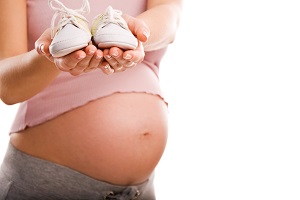The stress of the mother influences the child's age. Excess concerns its many pregnant women it affects telomere length of the fetus. Telomeres are DNA sequences that are essential for cell division: the birth shorter telomeres mean premature aging. The discovery of Tabea Send and Stephanie Witt of the Central Institute of Mental Health.
Chromosomal abnormalities in pregnancy are one of the great fears of expectant mothers. Prenatal tests help eliminate some doubts about it. To ensure the integrity of fetal chromosomes, however, also it needs a good dose of motherly peace.
Telomeres are repeated sequences of DNA that protect eukaryotic chromosomes. With each cell division is a little shorter, since they become too short, the cell dies. The length of telomeres is a biological indicator of age of the person and is associated with age-related illnesses.
Previous studies have already shown that ultraviolet radiation and oxidative stress affect telomere length. In addition, people with psychiatric and somatic disorders often have shorter telomeres than average. The disorders include major depression, post-traumatic stress and other disorders of the mind. But there are few studies on the link between telomere length and maternal stress during pregnancy.
The doctors and Tabea Send Stephanie Witt measured the telomeres of 319 infants and 318 mothers. They then interviewed the mothers about their habits and stress tests subjected pregnant. The questionnaires included questions about any psychological disorders and their father.
The data revealed a correlation between psychosocial stress in pregnancy and shorter telomeres in infants. In the case of stress in pregnancy, the mother telomeres were on average and those of shorter babies. In the case of past psychological disorders and outdated, mothers showed shorter telomeres and infants telomeres average. During pregnancy it is recommended that the mother is undergoing prenatal screening tests such as fetal DNA test that reveals the major chromosomal abnormalities.
Source: springer.com
Add a comment





